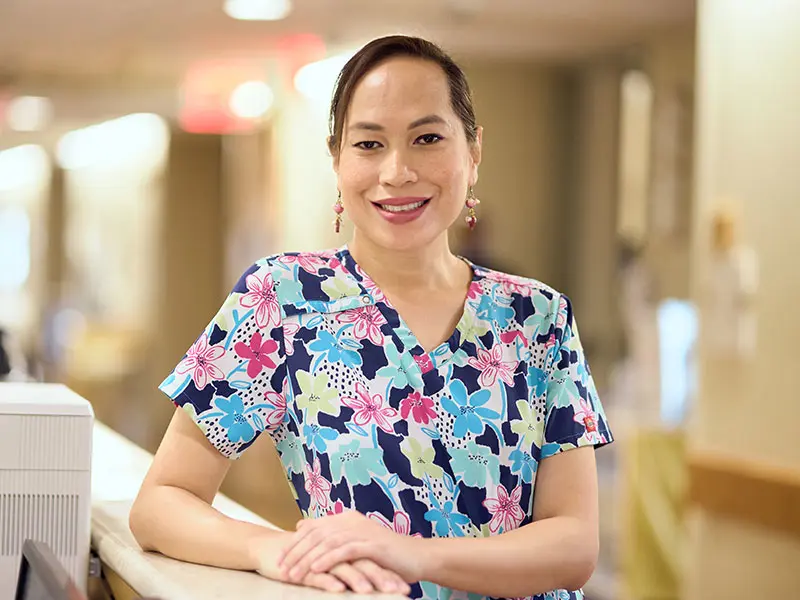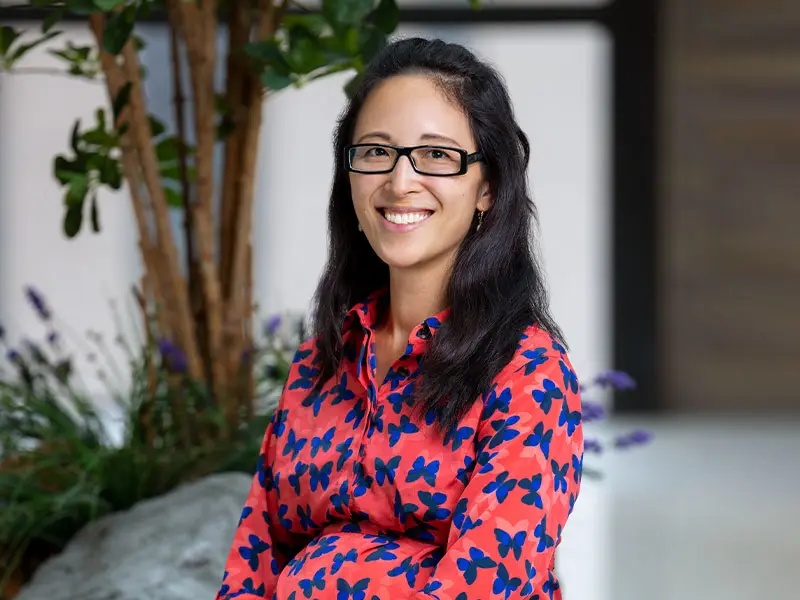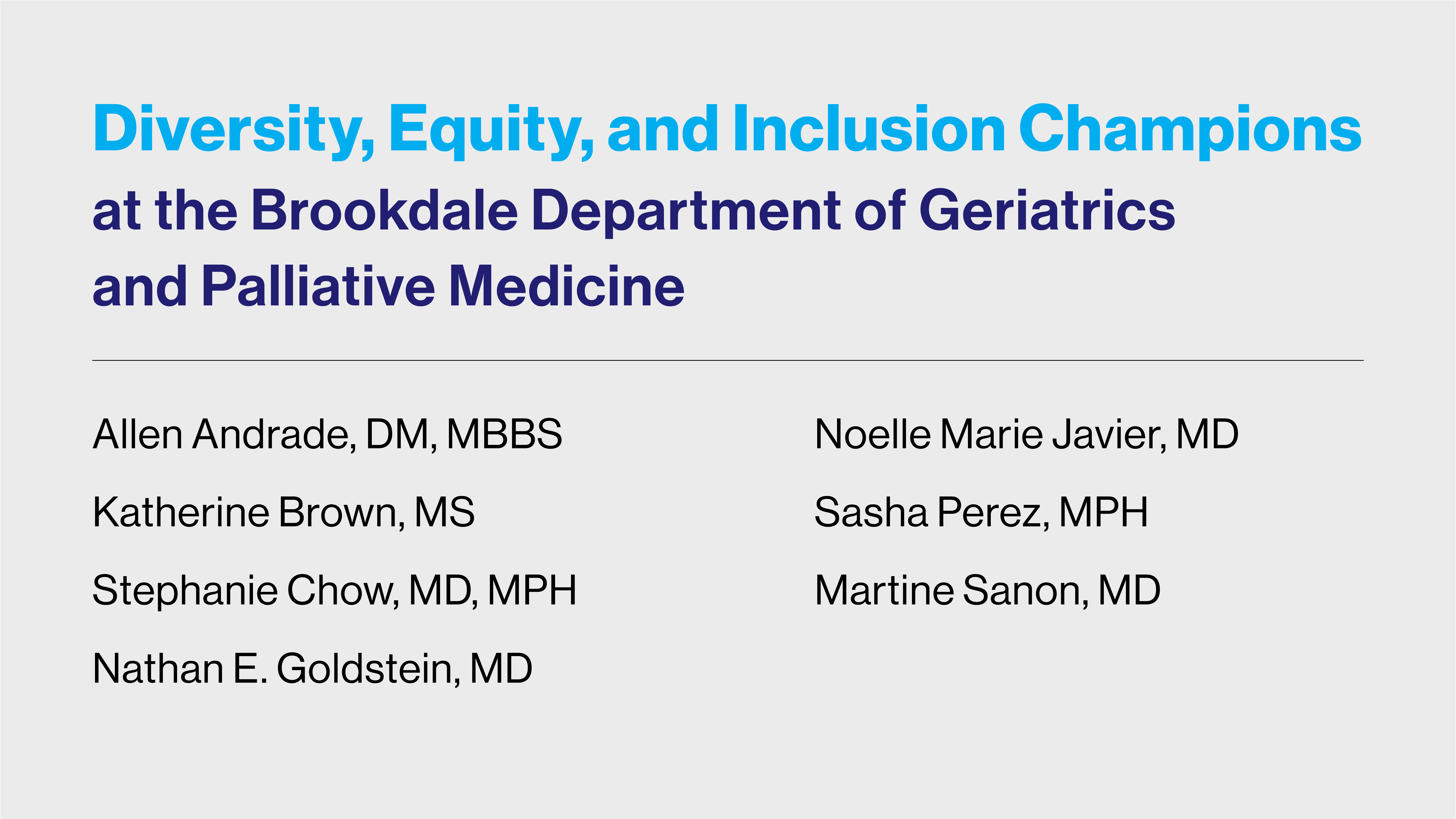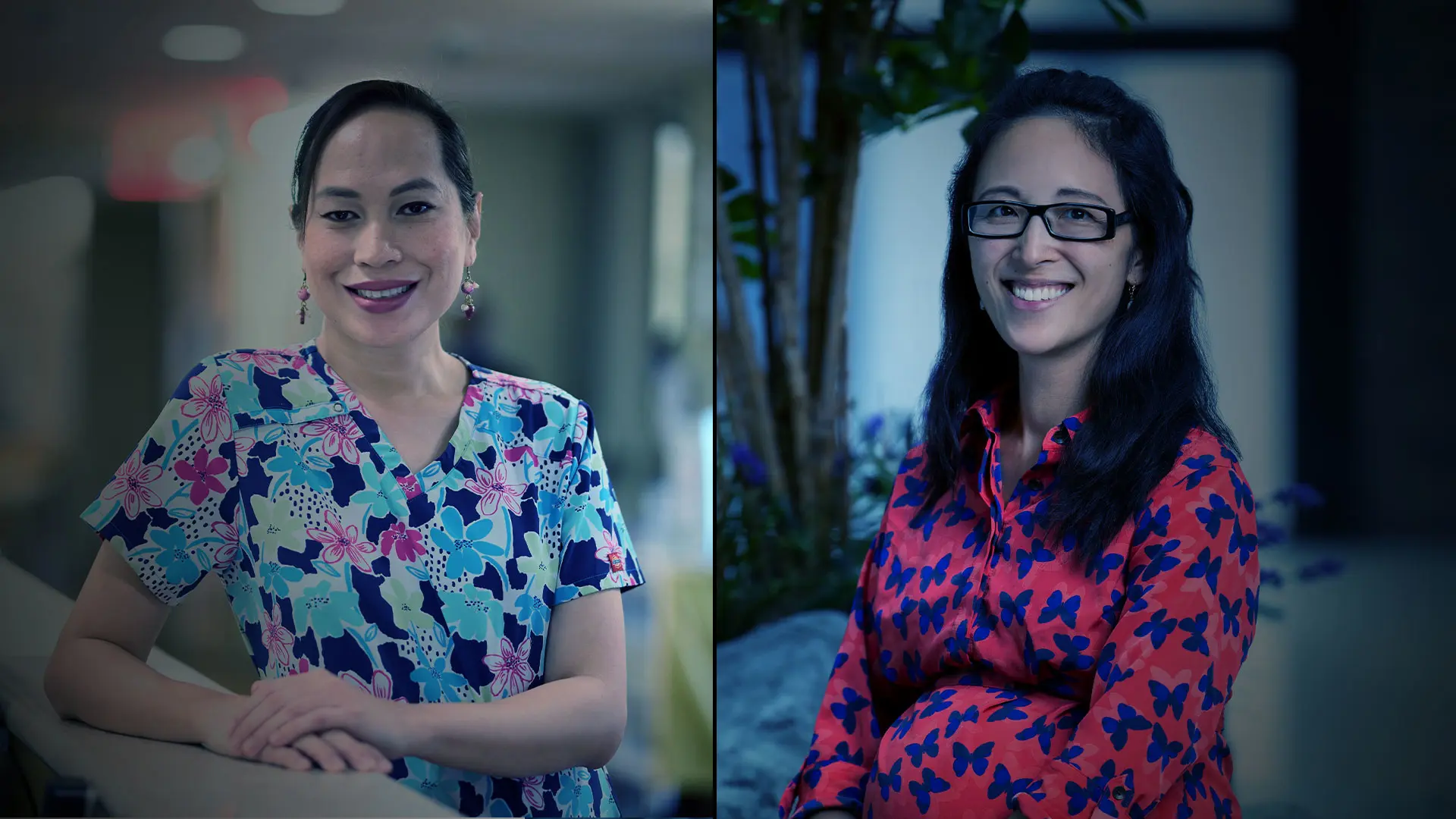Taking a Leadership Position in Diversity, Equity, and Inclusion
The Brookdale Department of Geriatrics and Palliative Medicine has fostered diversity, equity, and inclusion (DEI) within the Department and Mount Sinai for many years. Now the Brookdale Department has formalized its efforts and is poised to become a national leader on DEI in health care.
In this conversation, Noelle Marie Javier, MD, Associate Professor, DEI Co-Champion, and Stephanie Chow, MD, MPH, Assistant Professor, DEI Co-Champion, and Director of the ALIGN High-Risk Geriatrics Program, discuss recent initiatives and their goals for disseminating diversity, equity, and inclusion to a wider audience.
Why are diversity, equity, and inclusion important to the Brookdale Department?
Dr. Javier: Geriatrics and palliative care are two specialties that deliver care to the whole patient. This includes their identity, their lived experiences, and much more. Health care within geriatrics and palliative care is grounded in a foundation that fosters inclusivity and affirms everybody's existence. These two subspecialties provide encompassing care to the marginalized, to the frail, to the seriously ill, so that inevitably it is embedded in the fabric of what we do as a department.
Dr. Chow: We are drawn to the geriatrics and palliative care patient community, be it as clinicians or non-clinical staff. We pride ourselves on our ability to communicate with and also advocate for this patient community and their caregivers. Additionally, there is so much intersectionality in our work—so many underserved groups suffering from combined discrimination of ageism, ableism, racism, sexism, or other societal or cultural inequities. As a department, we feel passionately that all groups deserve advocacy and support. We see ourselves in the patients for whom we care, and this helps us build connection and rapport.
Dr. Javier: We have fostered diversity, equity, and inclusion in faculty and fellow recruitment. The twindemics of COVID-19 and the spotlight on racial injustice provided an impetus for us to be more cognizant and more deliberate around activities and initiatives around DEI.

Noelle Marie Javier, MD, Associate Professor, DEI Co-Champion
What new initiatives have you undertaken in the past year?
Dr. Chow: Noelle Marie was our original DEI champion. Then as the pandemic, Black Lives Matter, and social justice came to the forefront, we needed to add more support, so our championship group was formed. We started with the motto, “Speak Up, Act Up, Make Change.” The “Speak Up” part was finding the courage to teach ourselves more about social injustice, Black history, and structural racism, and learn more from each other. We started an educational book club and provided a series of skills training workshops as part of our “Act Up” initiative. Now in the “Make Change” phase, we're trying to be more patient-facing, community-facing, and reaching outside of our department to work with other groups in the Mount Sinai Health System and in our patient communities to actually make more change.
Dr. Javier: The selection criteria around faculty and fellow recruitment as well as retention and promotion has been much more robust because there is significant commitment from the Brookdale Department leadership. That's an important ingredient to a successful DEI program. The deliberate inclusion of the DEI wording in the fellowship curriculum and also including DEI within quality improvement projects in the curriculum are a significant expansion of our efforts. Other domains within the Department, such as research and clinical, have reached out to us for further collaboration on how to operationalize DEI further.
Dr. Chow: Every month we have one or two activities that are in the form of formal or informal lecture or discussion. Some of it is instructional, and some is in-depth dialogue and exploration among department members. It’s become a regular presence in the Brookdale Department. Feedback has been that the DEI efforts and activities are very much appreciated, and that the Department feels richer for those experiences.

Stephanie Chow, MD, MPH, Assistant Professor, DEI Co-Champion
How are you sharing this work outside of Mount Sinai?
Dr. Javier: We’ve presented to several national conferences, to give us a platform to educate and share, such as the American Geriatrics Society, the Gerontological Society of America, and the American Academy of Hospice and Palliative Medicine. We would like to do more presentations, regionally, nationally, and internationally. We want to be able to share our work with national organizations, enhance national representation, and provide close collaboration with other institutions in this shared mission of promoting DEI.
What are your short- and long-term goals?
Dr. Javier: Our short-term goals are to continue diversifying speakers and topics through our learning pathways, celebrating cultures, and collaborating with researchers, educators, and administrators within our Department that could also parlay into other departments within Mount Sinai. We are also working closely with Mount Sinai’s Office for Diversity and Inclusion and the Office of Well-Being and Resilience. We want to be able to continue and expand our work on gathering and integrating empowering feedback with the intention of building on and improving the work that we have done. For the long term, I would like to see some grant support for our efforts, sharing and partnering with other departments in Mount Sinai and other institutions, and seeing more public advocacy and reforms both locally and in our state.
Dr. Chow: The idea is to make DEI a part of the Department and the Health System culture, where DEI is an automatic part of existing as a member of the Brookdale Department. We eventually won’t even need a DEI committee if we do our job right because it will be the common mantra of our entire department at large.

